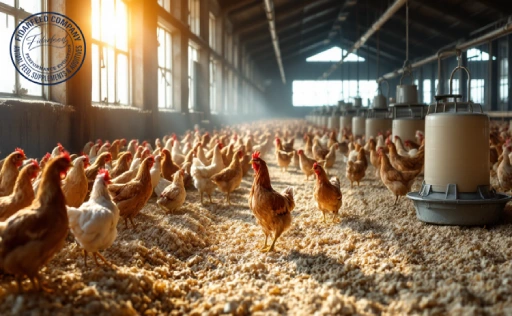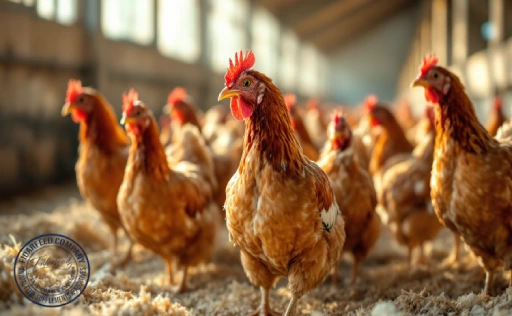Why Your Dog Has Severe Diarrhea: Understanding the Urgency
Why your dog has severe diarrhea is not just a casual concern. For dog breeders, it could signal underlying issues that threaten both the health of individual dogs and the well-being of the entire kennel. Diarrhea in dogs is more than an inconvenience—it can lead to rapid dehydration, nutrient loss, and even life-threatening complications if ignored. Recognizing the seriousness of this condition early can help breeders act quickly and responsibly. Let’s dive into the causes, solutions, and strategies to help your dogs recover and thrive.
Common Causes of Severe Diarrhea in Dogs Every Breeder Should Know
Diarrhea doesn’t happen without a reason. Here are the most common triggers:
- Dietary indiscretion: Dogs, especially curious ones, may eat spoiled food, garbage, or foreign objects.
- Bacterial or viral infections: Parvovirus, salmonella, or campylobacter can cause intense gastrointestinal upset.
- Parasites: Roundworms, hookworms, and Giardia are frequent offenders, particularly in puppies.
Learn more about: Synbiotic Supplement for Dogs and Cats
- Stress: New environments, travel, or loud noises can induce stress-related diarrhea.
- Antibiotics or medications: Some drugs upset gut flora, leading to loose stools.
Understanding the root cause is essential for choosing the right treatment and preventing future episodes.
From Puppies to Adults: Age-Specific Reasons Why Your Dog Has Severe Diarrhea
Puppies and adult dogs react differently to health challenges, and diarrhea is no exception:
- Puppies: Their immune systems are still developing, making them vulnerable to infections and parasites. Rapid dehydration in puppies can be fatal, so breeders must act fast.
- Adults: Older dogs may suffer from food intolerances, chronic diseases (like IBD), or stress-induced gastrointestinal issues.
Learn more about: The Ultimate Guide to Skin Diseases in Dogs: Symptoms, Treatment, and Prevention
Recognizing the dog’s age and history helps tailor both diagnosis and care.
Food-Related Issues: How Diet May Explain Why Your Dog Has Severe Diarrhea
Feeding is often the first place to look:
- Sudden changes in diet: Switching brands or protein sources too quickly can upset digestion.
- Low-quality feed: Poor ingredient quality or contamination can trigger gastrointestinal distress.
Learn more about: Best Dog Foods for Small Breeds: Pomeranian Breeder Edition
- Allergies or intolerances: Common allergens include chicken, beef, grains, or dairy.
Breeders should always transition diets gradually over 7–10 days and choose nutritionally balanced, vet-recommended foods.
When to Worry: Signs Your Dog’s Diarrhea Needs Urgent Medical Attention
Not all diarrhea is an emergency—but some cases are. Watch for these red flags:
- Bloody or black stools
- Lethargy or collapse
- Vomiting along with diarrhea
Learn more about: The Ultimate Guide to Skin Diseases in Dogs: Symptoms, Treatment, and Prevention
- High fever
- Signs of pain or bloating
These symptoms warrant immediate veterinary care. Waiting could cost your dog its life.
At-Home Solutions for Mild Cases: Natural and Vet-Approved Remedies
For less severe cases, there are things breeders can try at home:
- Fasting for 12–24 hours: Allows the gut to rest (not for puppies).
- Bland diet: Boiled chicken and white rice for 2–3 days can soothe irritation.
Learn more about: Understanding Skin Problems and Hair Loss in Dogs: Symptoms, Causes & Solutions
- Probiotics: These help restore healthy gut flora.
- Pumpkin puree: Rich in fiber, it can help regulate digestion.
Always monitor for improvement. If symptoms persist beyond 48 hours, consult a vet.
Preventing Future Episodes: Hygiene, Vaccines, and Parasite Control
Prevention is the breeder’s best defense:
- Clean water: Provide fresh water and sanitize bowls daily.
- Vaccination: Stay up to date on core vaccines like parvo and distemper.
- Deworming: Routine parasite control is essential, especially in breeding facilities.
Learn more about: Why is My Dog Stressed? Common Causes of Stress in Dogs
- Sanitation: Clean living spaces thoroughly with pet-safe disinfectants.
These steps minimize the risk of disease and create a healthier environment.
Monitoring and Record-Keeping: Why Tracking Symptoms Matters
Effective breeders keep good records. When diarrhea strikes:
- Note start time and frequency
- Record diet, recent changes, or medications
Learn more about: Best Probiotic for Small Dogs: A Complete Guide
- Track additional symptoms
These records help vets diagnose accurately and allow breeders to identify patterns or recurring problems.
Breeder-Specific Tips: Managing Severe Diarrhea in Multi-Dog Settings
In large-scale or multi-dog environments, one sick dog can endanger the entire group:
- Isolate affected dogs immediately
- Disinfect shared areas and tools
Learn more about: Probiotic Supplements
- Rotate feeding schedules to monitor intake
- Communicate with staff or co-breeders
Efficient management and early action can prevent outbreaks and reduce treatment costs.
Final Thoughts: Solving Why Your Dog Has Severe Diarrhea Is Key to Long-Term Health
Severe diarrhea is more than a temporary setback. For breeders, it affects everything from animal health to breeding success and financial sustainability. Identifying why your dog has severe diarrhea, responding quickly, and implementing effective long-term strategies are essential responsibilities. With knowledge, attention, and care, most dogs recover fully—and stronger systems can be built to prevent repeat episodes.
If you found this article useful, feel free to share it with fellow breeders or leave a comment below. Got questions or your own tips? Join the conversation!








